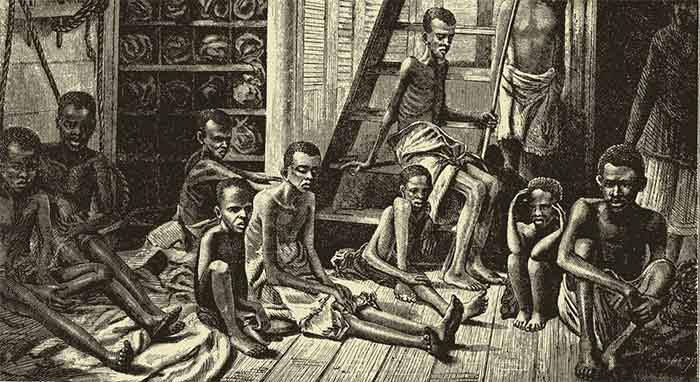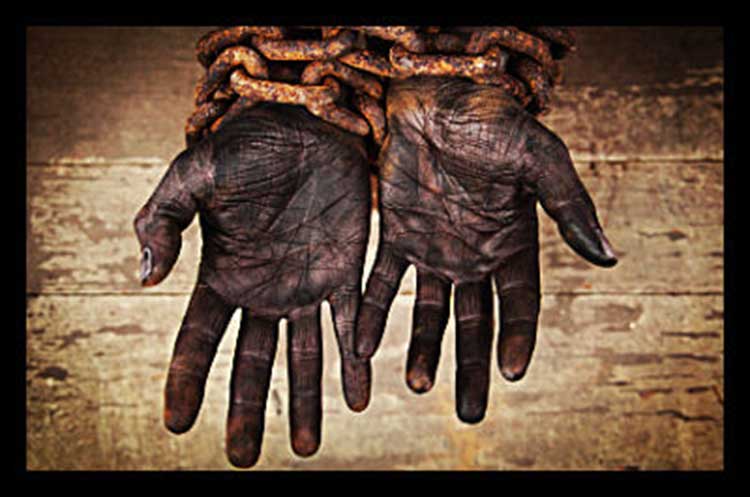
The House of Oranje-Nassau, the Royal House of the Netherlands, earned at least 545 million euros (about 3 million guilders – $600 million) in modern money from the Dutch colonies, where slavery was widespread. The figure has been adjusted for inflation, and covers the period from 1675 to 1770. It is one of the results of the investigation into the country’s connection to the slave trade. The investigation was commissioned by the Ministry of the Interior and Kingdom Relations at the request of Members of the Tweede Kamer, the lower house of Parliament.
Media reports said:
The study is an effort to study the role of the Dutch government and “related institutions” in slavery and its aftermath.
The country is also looking into returning looted artworks. While the country abolished slavery in 1863, some argue the pinnacle of its economic and cultural achievements was accomplished on the backs of forced laborers.
King Willem-Alexander is expected to publicly apologize for the country’s colonial predations on July 1, the 150th anniversary of the Dutch abolition of slavery in its former colonies. Prime Minister Mark Rutte made an official apology of his own in December for the country’s 250-year involvement in the slave trade, which he called a “crime against humanity,” but some activists argued this was not sufficient and demanded a further apology from the monarch.
Willem III, IV and V had an important political function as stead holder in the Republic of the Seven United Netherlands, a predecessor to the present-day Netherlands. As stead holders, they were essentially leaders, and their “colonial profit” accounts for half of the now known income that the stead holders received during the period that was researched.
The House of Oranje-Nassau benefited in various ways from the colonies and thus from slavery, the research showed. For example, the Dutch East India Company (VOC) was an important source of colonial revenue. The noble family did not invest in the VOC directly, but at the time of incorporation the shareholders arranged to pay the Oranjes as if they owned approximately 3 percent of the shares. They then regularly used their influence to solve problems for the trading company.
Internal Affairs Minister Hanke Bruins Slot received the book, which will form the basis for further research, on Thursday at the Koninklijke Schouwburg in The Hague. The research was carried out by several institutes and was led by the Royal Institute for Language, Land and Ethnology in Leiden.
Historians have long said that the Van Oranje-Nassau family was very much involved in the colonial rule of the former Dutch East Indies, Suriname and the Caribbean islands. It had not been known how large their financial interests were. The authors of the book have made an initial estimate based on the sources currently known.
“Slavery was deliberately made a foundation in the colonial actions by the Netherlands in Africa, the Americas and Asia. The Dutch State and its predecessors were directly responsible for this,” said International Institute of Social History researcher Matthias van Rossum on Thursday. For example, policies were made and initiatives supported that “enabled” colonial slavery.
The University of Curaçao said the impact of colonial slavery on the Caribbean parts of the kingdom is enormous and that little has been discussed or studied for far too long. “The effects of slavery did not stop with abolition.” The effects can still be clearly seen in the countries which were colonized.
The study published on Thursday is therefore not only important for the Netherlands, but also “particularly for Suriname and other former colonized societies. It shows how formative the Dutch colonial slavery past has been and how much impact these effects still have.” NiNsee is the national institute for the Dutch history involving slavery.
The results were released at a sensitive time. On July 1, a commemoration will be held for the 150th anniversary of the practical abolition of slavery under Dutch rule. King Willem-Alexander will give a speech that day at an event at the National Slavery Monument in the Oosterpark in Amsterdam. Sources expect him to repeat the apologies that Prime Minister Mark Rutte previously offered for the country’s dubious past.
Former Leiden University professor Gert Oostindie is leading a more extensive study into the role of the House of Oranje-Nassau during colonial history. He started this at the end of 2022 and expects the research to take three years.
The Netherlands established a national advisory panel to interrogate its colonial history in 2020 after the death in police custody of black man George Floyd in the US initiated a wave of racial self-examination, protests, and recriminations globally.
The Dutch colonial empire included parts of what are now the Virgin Islands, Brazil, Mauritius, Suriname, Ceylon, and several Indonesian islands. Much of their Asian territory, administered by the Dutch East India Company, was captured from the Portuguese, who had previously colonized the area.
The Netherlands is not the only former colonial power investigating the possibility of atoning for its past sins against once-oppressed populations. The government of Jamaica last month announced it would introduce a bill that could potentially sever its centuries-old relationship with the British monarchy, which claimed the island as a colony in 1655 and allowed it nominal independence in 1962. A recent poll found that the majority of populations in nearly half of the British Commonwealth nations would become republics if they had the option.
In the U.S., New York recently became the second state to take the first steps toward establishing a commission to investigate financial reparations for the descendants of black slaves imported from Africa.














































